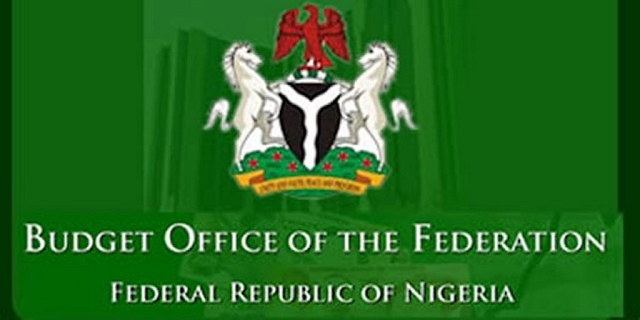- Fiscal plan records N2.426.73tn funding shortfall
- MDAs utilised N1.439tn capital vote
Nigeria spent N1, 823.89 trillion in 2017 on debt servicing, indicating a shortfall of N17.45 billion (or 0.95 per cent) decline over the projected N1,841.35 trillion in the budget for the year.
While N1, 455.53 trillion went into domestic debt service, N181.40 billion was spent to service external debt in 2017
The figures are contained in the fourth quarter and consolidated Budget Implementation Report (BIR) for the year 2017 obtained from the Budget Office of the Federation (BoF).
According to the report, the amount used for domestic debt service indicates N32.47 billion differential (or 2.18 per cent) below the annual projection.
An analysis of capital performance as at June 12, 2018 also showed that N1.563.15 trillion was released and cash-backed to the ministries, departments and agencies (MDAs)) for their 2017 capital projects and programmes.
However, only N1,439.97 trillion was utilised by the MDAs.
A breakdown showed that N303.46 billion was released in the first batch or warrant, N365.35 billion in the second batch or warrant, N66.42 billion in the third batch, and N19.67 billion in the fourth batch.
An additional release of N23.30 billion and N784.94 billion were made as Authority to Incur Expenditure (AIEs).
According to the 2017 budget report, N2, 377 trillion, excluding other funding sources, was received to fund the budget.
This comprises N1,125.05 trillion (or 47.33 per cent) oil revenue and N1.251.96 trillion (or 52.67 per cent) non-oil revenue. The aggregate revenue receipt for the period was N2,707.39 trillion (or 53.25 per cent) of the budget, lower than the annual projection but N622.95 billion (or 35.51 per cent) higher than the N1. 754.06 trillion reported in 2016.
Total inflow for funding the 2017 Budget stood at N2, 657.67 trillion, indicating a shortfall of N2.426.73 trillion (or 47.73 per cent) below the annual estimate for the period.
Similarly, actual expenditure in 2017 stood at N6,463.61 billion, indicating a N977.57 billion (or 13.14 per cent) below the annual projection.
The 2017 expenditure was however N2,067.37 trillion (or 47.03 per cent) higher than the expenditure of N4,396.24 trillion recorded in 2016.
A total of N2,765.33 billion was spent as non-debt recurrent expenditure in 2017, implying a reduction of N225.59 billion (or 7.54 per cent) below the annual estimate of N2,990.92 trillion.
It was however, above the non-debt recurrent expenditure of N2,411.63 trillion reported in 2016 by N353.70 billion (or 14.67 per cent).
Statutory Transfers also amounted to a total sum of v434.41 billion in the review period.
Revenue shortages therefore continued with gross oil revenue of N4,084.35 trillion trillion in 2017.
This translated to a N1,250.10 trillion (or 23.43 per cent) shortfall below the annual budget, but was significantly above the N2,695.43 trillion generated in the corresponding period of 2016.
Gross non-oil revenue of N2,791.58 trillion received in 2017 also signified a shortfall of N1,467.61 trillion (or 34.46 per cent) below the annual estimate of N4,259.19 trillion.
A breakdown of the non-oil revenue items showed that all the non-oil revenue items fell below their expected annual projections.
The net distributable revenue to the three tiers of government after cost deductions therefore stood at N4,944.08 trillion in 2017, representing a shortfall of N3,568.99 trillion (or 41.92 per cent).
The report noted that the implementation of the budget in 2017 was critically affected by the poor revenue out turn as oil production and exports remained below the budget estimates while the performance of the economy, though improving, continued to impact negatively on non-oil revenue.
The price of crude oil at the international market, the report stated, averaged US$61.39 in the fourth quarter of 2017 yielding an average of US$54.27 per barrel in 2017.
The price of crude oil in 2017 also represented an increase of US$9.77 per barrel (or 21.96 per cent) above the US$44.5 per barrel oil price benchmark for the 2017 Budget.
This, the budget report pointed out, could be attributed to the increase in demand of oil at the world market and the implementation of the Organisation of Petroleum Exporting Countries (OPEC) agreement to cut down crude oil production.
Based on the report, domestic crude oil production however lagged at an average of 1.89mbpd in December 2017 and 1.95mbpd in the fourth quarter of 2017.
In the preface to the consolidated Budget Implementation Report, the Director General, Budget Office of the Federation (BoF), Ben Akabueze had observed that the execution of the 2017 Budget in the fourth quarter of the year was very challenging on several fronts, basically due to the extension of the 2016 capital budget to May 5, 2017. “
This meant that the implementation of the 2017 capital budget did not commence until the tail-end of the first half of the fiscal year. The execution of the 2017 budget was also adversely affected by the shortfalls in anticipated oil and non-oil revenues.
“Nevertheless, the government continued to meet its non-discretional expenditures as and when due,” he said













